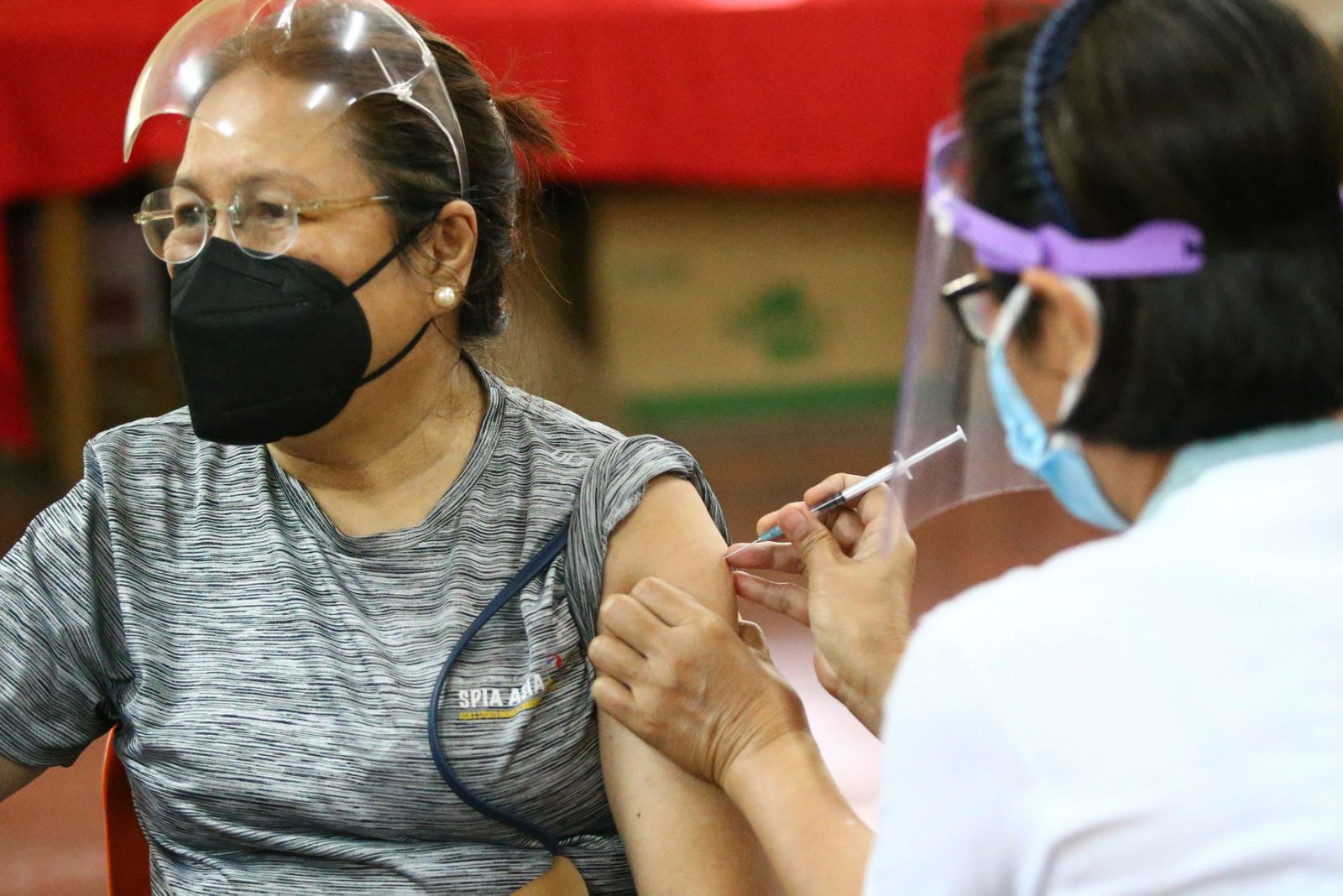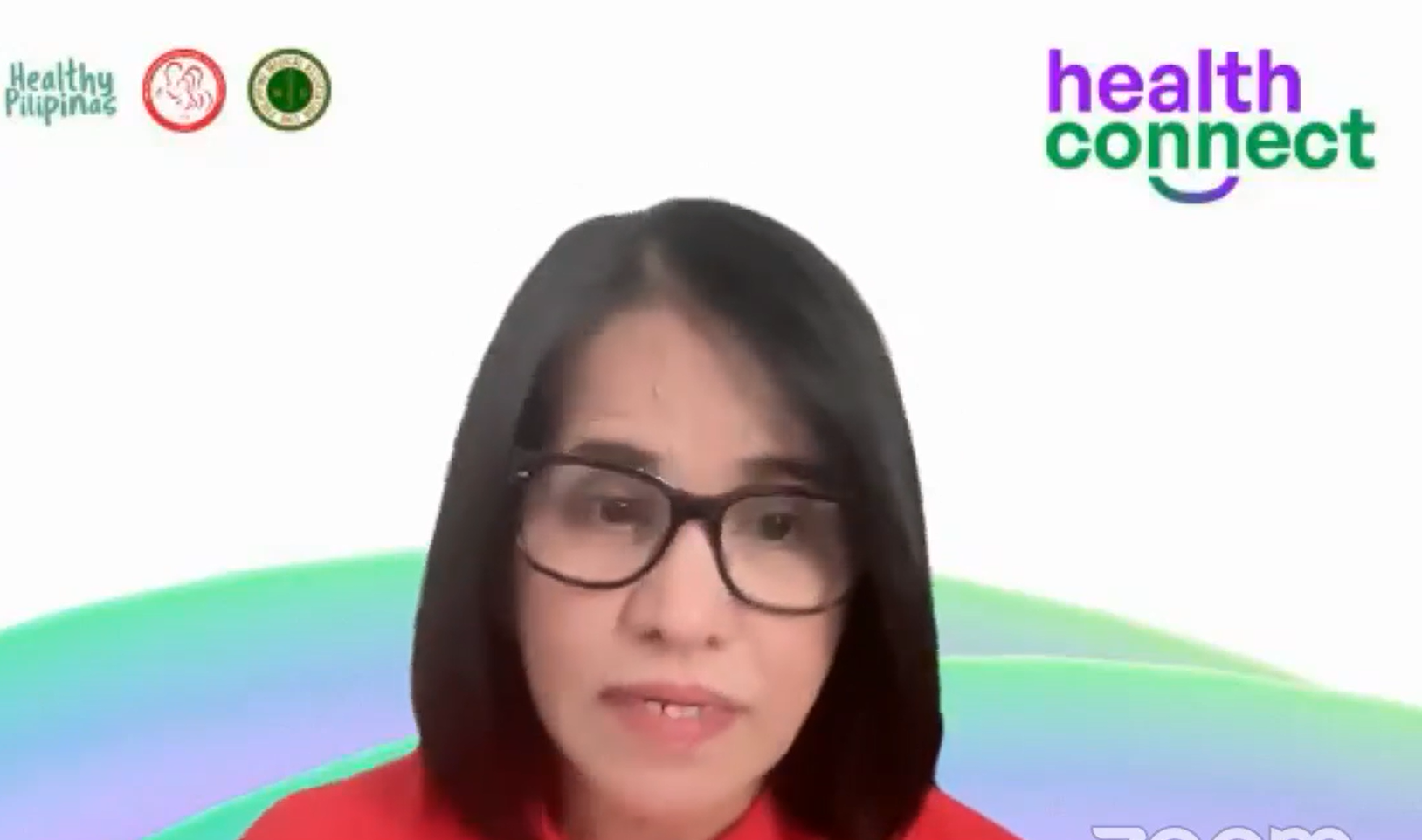Vaccines for all: Expert calls for comprehensive adult vaccination rollout in the Philippines
Recognizing the communal benefits of vaccination, particularly its role in protecting not only individuals but also households and communities, an expert has urged medical professionals to “offer vaccines to all adults.”

"Even if the reason for consultation for admission to the hospital is not related to the need for vaccines, at some point, we have to include it in the discussion," said Philippine Society for Microbiology and Infectious Diseases (PSMID) Inc. Adult Immunization Committee Co-Chair Faith Villanueva during the Health Connect Media Forum commemorating 50 years of the Expanded Immunization on Friday, April 26.
Citing the 2023 Omnibus Health Guidelines for Adults, the expert highlighted the necessity of addressing individuals' concerns and misconceptions about vaccination promptly and respectfully.
"When patients or individuals ask questions, they tell us that we read on the internet or Google---that should not be dismissed," Villanueva said.
Moreover, Villanueva said that questions on vaccination should be "addressed properly in a friendly and professional manner" and "not be considered derogatory information.
"Because that may add a barrier to immunization if you strike down the concerns of individuals that they hear from other people or read elsewhere," Villanueva.
Meanwhile, Villanueva pointed out the role of vaccine providers in “strongly recommending" necessary vaccines.
“Recommending them include sharing tailored reasons why vaccination is right for the patient, highlighting the positive experiences with vaccination.”
"Explain also the potential of getting sick vs. the cause of being vaccinated because it's actually a very important consideration," she added.
Moreover, with 70 percent of the Philippine population being adults, Villanueva noted the declining immunity acquired from childhood vaccinations and previous infections as individuals age, making them vulnerable to infectious diseases.
"Once it's weakened, we become susceptible to infectious diseases including vaccine-preventable diseases," she said.
Villanueva highlighted the established link between infectious and chronic diseases, noting the increased susceptibility of individuals with chronic conditions to infections.
"By nature, some infections are chronic and this will impact the total health and well-being of individuals," she said.
She addressed how the use of antibiotics for infections and reinfections has contributed to the country's antimicrobial resistance dilemma.
Related to this, the expert stressed the importance of recognizing that the top five causes of mortality in the Philippines from 2021 to 2022 are largely linked to infections.
She explained that adult immunization has long been neglected in favor of other health priorities, largely due to the incomplete recognition of its societal impacts.
Challenge in the local setting
Addressing the challenges in the local context, Villanueva mentioned the absence of national standardized policies and guidelines for adult immunization.

"The other one is the lack of awareness, and this is for both the physicians and the patient with regards to the needs, the benefits, the recommendations, and the availability of these vaccines," she said.
Villanueva called upon media partners to collaborate with medical professionals in disseminating vaccine education to the public across the country.
"The cost of vaccines is the other challenge. Unfortunately in the country, the vaccinations except those that are done in the health centers are out-of-pocket expenses," she pointed out.
"They are not covered by insurance, not covered by PhilHealth. When they go to the health centers, only limited vaccines are offered for senior citizens," Villanueva added.
Villanueva emphasized that it is now time to not only advocate for adult immunization but also to take concrete actions toward its implementation.
"But we must see to it that it is achieved, that we can provide vaccination for every adult Filipino," she said.
The expert cited the World Health Organization's (WHO) statement that achieving widespread adult immunization is both feasible and achievable, highlighting its potential to become a reality.